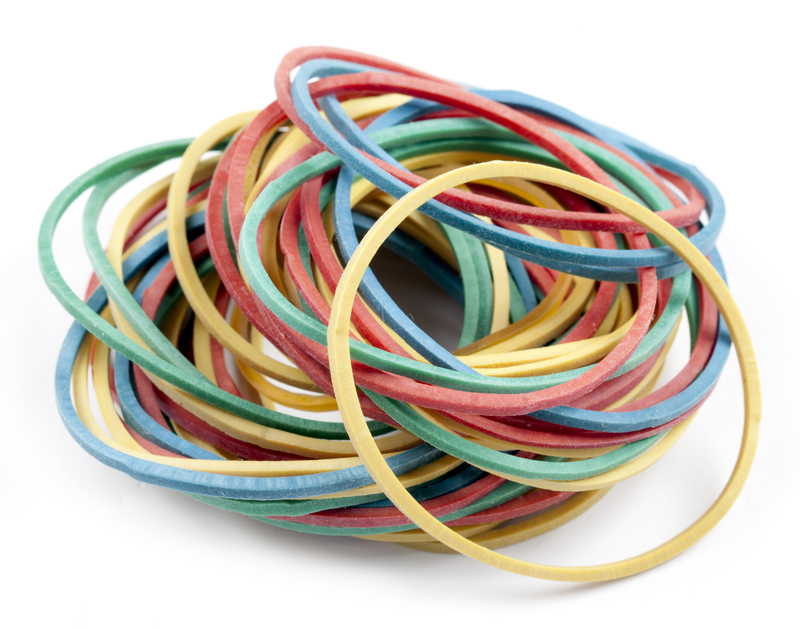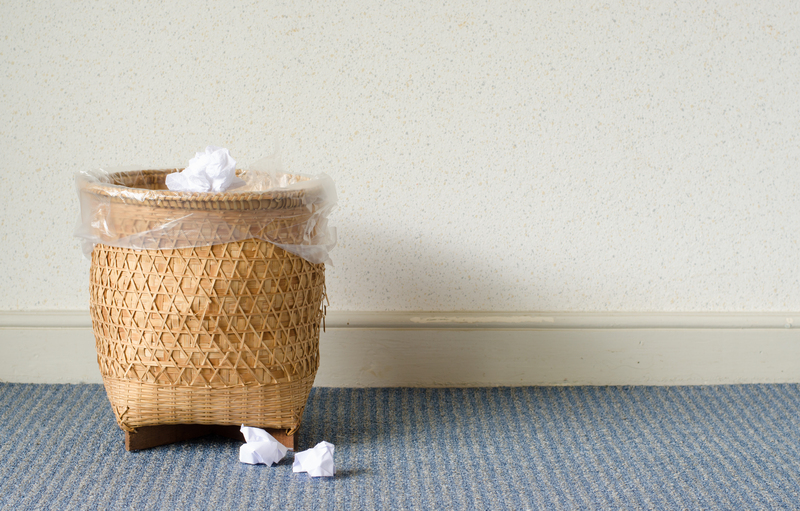Preparing Old Pots and Pans for a Green Goodbye
Our beloved pots and pans withstand years of boiling, frying, and baking. Eventually, however, even the sturdiest cookware reaches the end of its kitchen life. Rather than sending them to landfill, why not ensure a sustainable farewell? This comprehensive guide will walk you through insightful and eco-friendly ways to dispose, recycle, or repurpose your cookware, preparing your old pots and pans for a truly green goodbye.
Why Sustainable Disposal Matters
With growing awareness about environmental stewardship, disposing of cookware responsibly goes a long way. Traditional disposal leads to overloaded landfills and environmental pollution. Materials such as aluminum, stainless steel, and non-stick coatings can take centuries to degrade, releasing toxins in the process.
- Metals can be successfully recycled, greatly reducing resource extraction.
- Proper disposal helps mitigate toxic substance leaching into soil and waterways.
- Repurposing and recycling create a circular resource economy.
Choosing to say a green goodbye to your outdated pans benefits both the planet and your conscience!

Step 1: Assess the Condition of Your Cookware
Before deciding how to part ways with your pots and pans, evaluate their current condition. Consider these questions:
- Is the handle loose but fixable?
- Are the surfaces deeply scratched or warped?
- Do non-stick pans have peeling coatings?
- Is there excessive rust or burnt-on residue?
If your cookware is still usable, even if slightly worn, consider repurposing or donating before opting for disposal.
Usable Cookware Solutions
- Donation: Shelters, thrift stores, or local charities may accept functional cookware.
- Swap or Giveaway: Post on neighborhood social networks for those who might want them for camping or craft projects.
Broken or Worn-Out Pots and Pans
- If unsafe for cooking (flaking non-stick, severe rust), opt for responsible recycling.
Step 2: Thoroughly Clean Your Old Pots and Pans
Whether recycling or donating, give your old cookware a final deep clean. This ensures recyclers can efficiently process materials and charities can safely redistribute items.
- Soak: Use warm, soapy water to loosen stubborn grime.
- Scrub: Scour away food residue, especially if donating.
- Remove Parts: Unscrew and detach plastic or wooden handles if possible (often required by recycling centers).
Your cookware should now be ready for its green goodbye.
Step 3: Determine the Material Type
Understanding what your pots and pans are made of is crucial for recycling or upcycling. Common materials include:
- Stainless steel
- Cast iron
- Aluminum
- Non-stick (Teflon, ceramic coatings, etc.)
- Copper
Pro Tip: If you're uncertain, try using a magnet--stainless steel is often magnetic, while aluminum is not.
Step 4: Responsible Recycling for a Sustainable Goodbye
Where to Recycle Old Cookware
Many metals used in cookware are highly recyclable. Here's how to find a suitable solution:
- Municipal Recycling Programs: Check your city's guidelines; some curbside pickups accept metal goods, while others require drop-off at special facilities.
- Scrap Metal Yards: Most accept pots and pans, separating metals for reprocessing.
- Retail Take-Back Programs: Some kitchenware brands or retailers offer take-back initiatives for old cookware.
Reminder: Remove plastic, rubber, or wooden handles before recycling--they can contaminate metal batches. Mixed-material pans may not be recyclable curbside and require specialized facilities.
Special Considerations for Non-Stick and Coated Cookware
Non-stick surface pans (such as those with Teflon) can be challenging due to chemical coatings. Many facilities won't accept them; call ahead for local rules.
- If possible, remove non-metal parts.
- Some manufacturers sponsor mail-back or take-back programs for their own products.
- Never incinerate Teflon or non-stick pans--this can release harmful fumes.
Copper and Cast Iron: Premium Recyclables
- Both copper and cast iron fetch good value at scrap yards--don't let them go to waste!
- Clean thoroughly and remove non-metallic components.
Step 5: Upcycling Ideas--A Creative Goodbye to Old Cookware
Giving old pots and pans a second life doesn't only mean recycling! Upcycling transforms them into practical or decorative new items. Here are inspiring ways to repurpose your old kitchenware:
Garden Planters
Cast iron skillets, ceramic pans, and deep pots make unique plant containers.
- Drill drainage holes if needed.
- Fill with soil, herbs, succulents, or flowers for a rustic garden look.
Bird Feeders and Baths
- Hang an old pan with wire as a bird feeder or bird bath in your yard.
- Combine several pans for a tiered garden feature.
Wall Art and Clocks
- Paint or decorate pan surfaces for creative wall decor.
- Turn shallow pans or lids into quirky clocks using a basic clock kit.
Storage and Organization
- Mount lids as hooks or holders for kitchen utensils.
- Repurpose pots to store tools, sewing supplies, or crafting materials.
Fun DIY Projects for Families
- Turn cookware into musical instruments for kids.
- Use as molds for homemade birdseed cakes or as sand castle bases.
Upcycling preserves memories and breathes new life into favorite pans. Let your creativity guide the green goodbye!
Frequently Asked Questions: Preparing Old Cookware for a Sustainable Goodbye
Can I Put Old Pots and Pans in the Recycling Bin?
It depends on local recycling guidelines. Many municipalities need you to drop metal pans off at a scrap yard or designated collection point; curbside programs may not accept bulky items or mixed materials.
Are Non-Stick Pans Bad for the Environment?
Pans with PTFE (Teflon) coating can be problematic, as the coatings do not break down easily and may release toxic substances if overheated or incinerated. Recycling options are limited, and proper disposal should be prioritized.
Should I Remove Handles Before Recycling Pots and Pans?
Yes, remove plastic, rubber, silicone, or wooden handles. They must be separated as mixed materials complicate the recycling process. Use a screwdriver or pliers as needed.
How about Anodized Aluminum Pans?
Anodized and regular aluminum pans can often be recycled at metal yards. Double-check local rules and ensure all food and non-metal pieces are cleaned off first.
Is Cast Iron Recyclable?
Cast iron is 100% recyclable and highly desired by scrap recyclers. Alternately, consider seasoned cast iron's long lifespan--it's possible to restore and continue using, or donate to someone else.
Key Tips for Responsible Disposal of Pots and Pans
- Research local recycling requirements--rules vary by area and facility.
- Never dispose of old cookware in general waste if recycling or donation is possible.
- For non-stick pans, seek out retailer or brand-specific take-back programs.
- Remove all food, grease, and non-metal parts before recycling.
- If donating, ensure the cookware is safe, clean, and functional.
- For creative upcycling, only use pans that are free of toxic substances or coatings.

The Environmental Impact of a Green Goodbye
By preparing your old pots and pans for a sustainable goodbye, you're contributing to resource conservation, reducing pollution, and minimizing the carbon footprint of your household. Each pan you recycle or repurpose avoids landfill buildup and supports a model of circular economy.
- Over 10 million tons of household metals are discarded annually--much of it is recyclable!
- Recycling aluminum and steel saves up to 95% of the energy required for new production.
- Reusing or upcycling items reduces demand for raw material extraction.
Your green goodbye becomes part of a movement towards a healthier planet and sustainable lifestyle.
Conclusion: Saying Goodbye the Eco-Friendly Way
Preparing your old pots and pans for a green goodbye goes far beyond tossing them in the trash. By following simple steps--cleaning, sorting materials, recycling, donating, or unleashing your creativity with upcycling--you can keep valuable resources in use and minimize environmental harm. Take pride in knowing your actions make a difference, helping to preserve the planet for future generations--one pot and pan at a time.
Ready to get started? Gather your old cookware, follow these tips, and share your green goodbye stories to inspire others. Every eco-friendly choice counts!